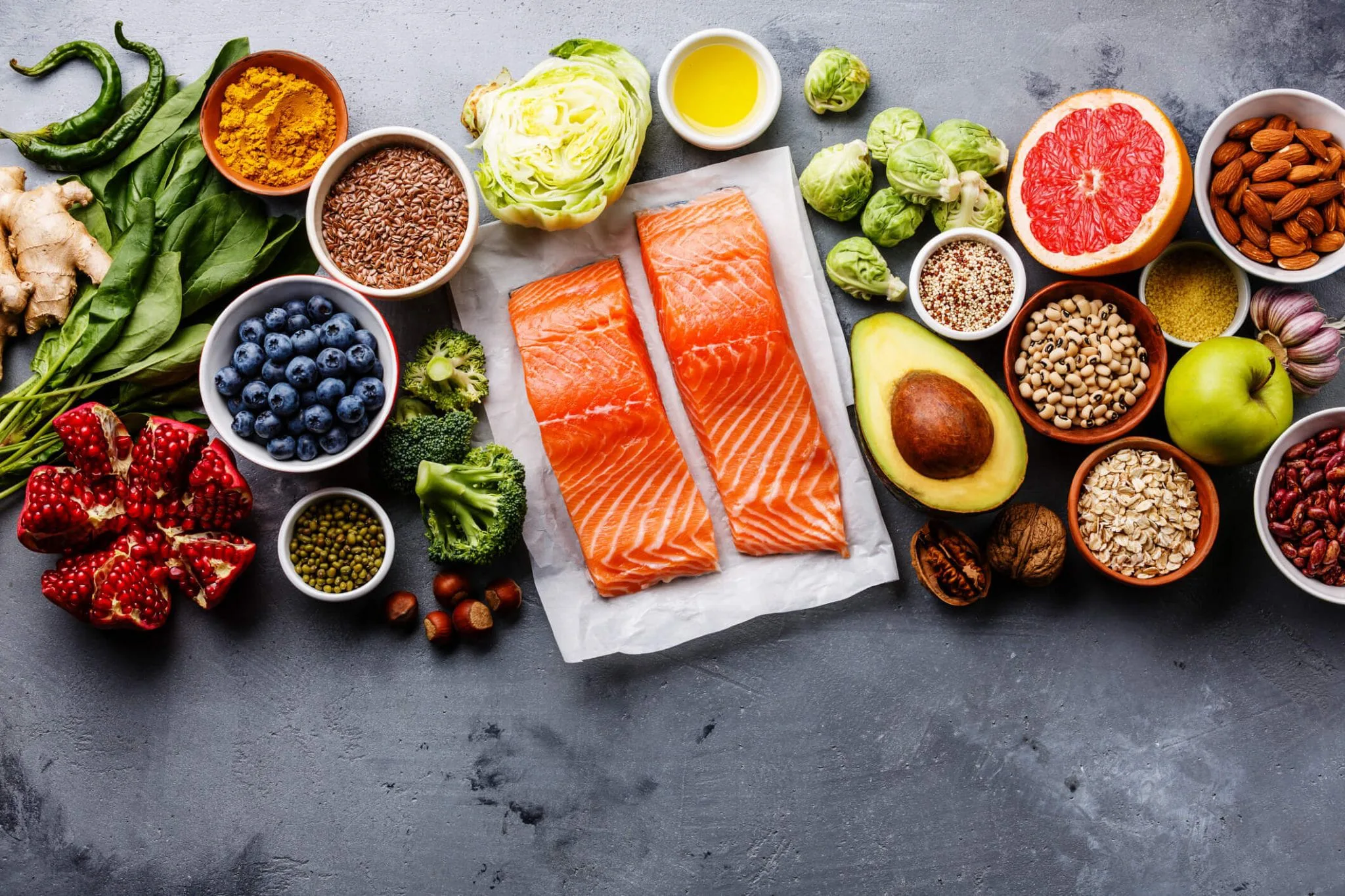
Why Pineapple Is Good for You
Pineapple is a tropical fruit that is not only delicious but also offers a wide range of health benefits. From its nutritional profile to its various uses in cooking and as a natural remedy, pineapple has much to offer. In this comprehensive article, we will explore the reasons why pineapple is good for you, including its nutritional profile, health benefits, ways to consume it, precautions to consider, and answers to some of the most frequently asked questions about this amazing fruit.
Nutritional Profile of Pineapple
Pineapple is a rich source of essential vitamins, minerals, and enzymes. Here is a detailed look at its nutritional content:
1. Vitamins
- Vitamin C: Pineapple is high in vitamin C, an antioxidant that helps boost the immune system, protect cells from damage, and promote collagen production for healthy skin.
- Vitamin B1 (Thiamine): Essential for energy production and nerve function.
- Vitamin B6: Plays a role in brain development and function, as well as the metabolism of proteins.
- Folate: Important for cell growth and development, especially during pregnancy.
2. Minerals
- Manganese: Supports bone health and helps with metabolism.
- Copper: Necessary for the production of red blood cells and the maintenance of healthy connective tissues.
- Potassium: Helps regulate blood pressure and maintain proper heart function.
3. Enzymes
- Bromelain: This is a unique enzyme found in pineapple that has several health benefits, including reducing inflammation and aiding digestion.
Health Benefits of Pineapple
1. Boosts Immunity
The high vitamin C content in pineapple helps strengthen the immune system, making you less susceptible to illnesses such as colds and flu. Vitamin C also acts as an antioxidant, protecting the body from free radicals that can damage cells and lead to chronic diseases.
2. Aids Digestion
Bromelain in pineapple helps break down proteins and improve digestion. It can also reduce inflammation in the digestive tract and may be beneficial for people with digestive disorders such as irritable bowel syndrome (IBS) and inflammatory bowel disease (IBD).
3. Reduces Inflammation
Bromelain has powerful anti-inflammatory properties. It can help reduce swelling and pain associated with conditions like arthritis, sports injuries, and sinusitis. By reducing inflammation, bromelain may also lower the risk of chronic diseases such as heart disease and cancer.
4. May Help with Weight Loss
Pineapple is low in calories and high in fiber, making it a great choice for those looking to lose weight. The fiber helps you feel full for longer, reducing the urge to overeat. Additionally, the enzymes in pineapple may help boost metabolism, which can aid in weight loss.
5. Improves Skin Health
The vitamin C and other antioxidants in pineapple can help improve skin health by reducing oxidative stress and promoting collagen production. Collagen is essential for maintaining the elasticity and firmness of the skin, reducing the appearance of wrinkles and fine lines.
6. May Lower the Risk of Cancer
Some studies suggest that the antioxidants and enzymes in pineapple may have anti-cancer properties. While more research is needed, these compounds may help protect cells from damage and reduce the risk of developing certain types of cancer.
7. Supports Heart Health
The potassium in pineapple helps regulate blood pressure, reducing the risk of heart disease. Additionally, the antioxidants and anti-inflammatory properties of pineapple may also benefit heart health by reducing inflammation and oxidative stress.
How to Consume Pineapples
1. Fresh Pineapple
Eating fresh pineapple is one of the best ways to enjoy its benefits. Simply cut off the top and bottom of the pineapple, peel off the skin, and cut the flesh into slices or chunks. You can eat it on its own as a snack or add it to fruit salads, smoothies, or yogurt.
2. Pineapple Juice
Pineapple juice is a refreshing and nutritious beverage. You can make your own juice by blending fresh pineapple chunks and straining the pulp. You can also buy bottled pineapple juice, but be sure to choose one that is 100% juice without added sugars.
3. Pineapple in Cooking
Pineapple can be used in a variety of cooked dishes. It pairs well with meats such as pork and chicken, adding a sweet and tangy flavor. Pineapple can also be added to stir-fries, curries, and salsa. It can be baked into muffins, cakes, and breads for a tropical twist.
4. Dried Pineapple
Dried pineapple is a convenient snack that can be taken on the go. Look for dried pineapple without added sugars or preservatives for a healthier option.
Precautions to Consider
1. Allergic Reactions
Some people may be allergic to pineapple. Symptoms of an allergic reaction can include itching, swelling, hives, difficulty breathing, and anaphylaxis. If you have a known allergy to pineapple or other fruits in the same family (such as kiwi and mango), avoid consuming pineapple.
2. Mouth Irritation
Eating large amounts of fresh pineapple can cause mouth irritation due to the enzymes in the fruit. This can result in a sore tongue, lips, or gums. To reduce the risk of mouth irritation, limit your intake of fresh pineapple or soak it in salt water before eating.
3. Interaction with Medications
Pineapple and bromelain may interact with certain medications, such as blood thinners, antibiotics, and anti-inflammatory drugs. If you are taking any medications, consult your healthcare provider before consuming large amounts of pineapple or taking bromelain supplements.
Most-Asked Questions About Pineapples
1. Is pineapple good for diabetics?
Pineapple is relatively high in sugar, so people with diabetes should consume it in moderation. However, the fiber in pineapple can help slow down the absorption of sugar, and the antioxidants and other nutrients may have benefits for overall health. It is important for people with diabetes to monitor their blood sugar levels and consult their healthcare provider before adding pineapple to their diet.
2. Can pregnant women eat pineapple?
Pregnant women can eat pineapple in moderation. Pineapple contains enzymes that can soften the cervix, so some people believe that eating large amounts of pineapple late in pregnancy can induce labor. However, there is currently no scientific evidence to support this claim. As with any food, it is important for pregnant women to eat a balanced diet and consult their healthcare provider if they have any concerns.
3. How much pineapple should I eat per day?
There is no specific recommended amount of pineapple to eat per day. However, as with any food, moderation is key. A serving of pineapple is about one cup of fresh chunks or half a cup of canned pineapple. Eating too much pineapple can cause digestive issues or mouth irritation.
4. Can pineapple help with acne?
The antioxidants and anti-inflammatory properties of pineapple may help reduce inflammation and oxidative stress, which can contribute to acne. However, there is currently no scientific evidence to support the use of pineapple as a treatment for acne. A healthy diet that includes a variety of fruits and vegetables, along with proper skincare, may help improve acne.
5. Does pineapple help with digestion after a heavy meal?
The enzymes in pineapple, especially bromelain, can help aid digestion after a heavy meal. However, it is important to note that pineapple alone is not a cure for digestive problems. If you experience frequent digestive issues, it is best to consult your healthcare provider for proper diagnosis and treatment.
Pineapple is a delicious and nutritious fruit that offers a wide range of health benefits. From boosting immunity and aiding digestion to reducing inflammation and improving skin health, pineapple has something for everyone. Whether you enjoy it fresh, in juice form, or in cooked dishes, incorporating pineapple into your diet can be a great way to improve your overall health. However, it is important to be aware of the precautions and potential interactions with medications. By making informed choices and enjoying pineapple in moderation, you can reap the many benefits of this tropical fruit.





